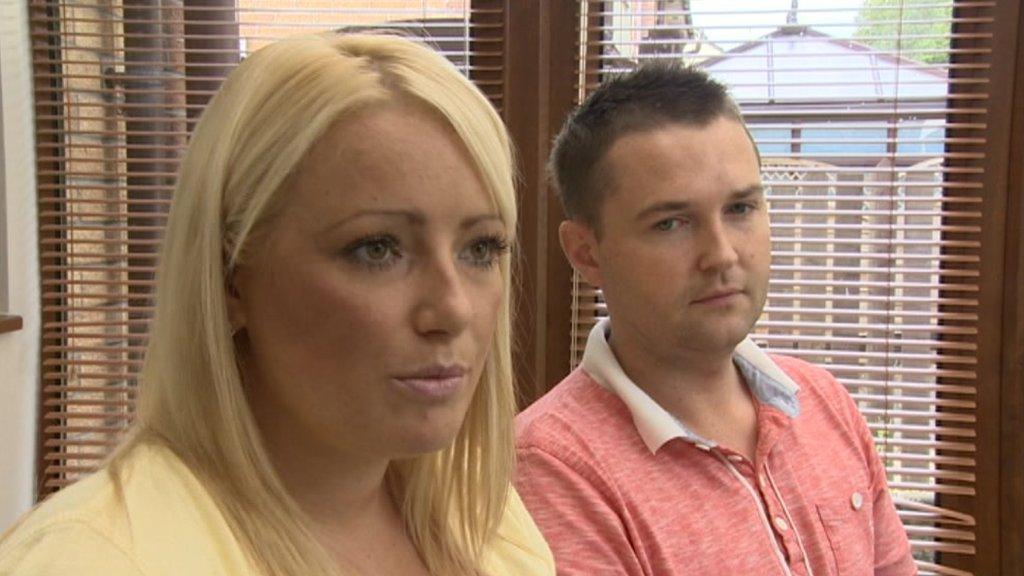Bristol Royal Hospital for Children: Luke Jenkins's parents want answers
- Published
Luke Jenkins' parents Stephen and Faye tell their story
The parents of a seven-year-old boy who died a week after heart surgery at Bristol Royal Hospital for Children in 2012 say they are still looking for answers - as the findings of a review into cardiac care at the hospital are published.
Luke Jenkins was a happy, lively child.
More often than not, according to his parents, he had the "biggest smile on his face".
"Nothing ever seemed to phase him," his father Stephen Jenkins told me at the family home in St Mellons, Cardiff.
"You wouldn't have believed he had a health condition."
But before he was even born in November 2004 doctors discovered Luke had a life-threatening heart condition.
The family were told he would need three big heart operations to put things right. The first came when he was just three months old.
Luke had been in and out of hospital frequently; so often, in fact, he'd developed a fascination with medicine.
He liked to dress up as a doctor, had his own stethoscope and white coat, and never wanted to miss an episode of Casualty and Holby City on TV.
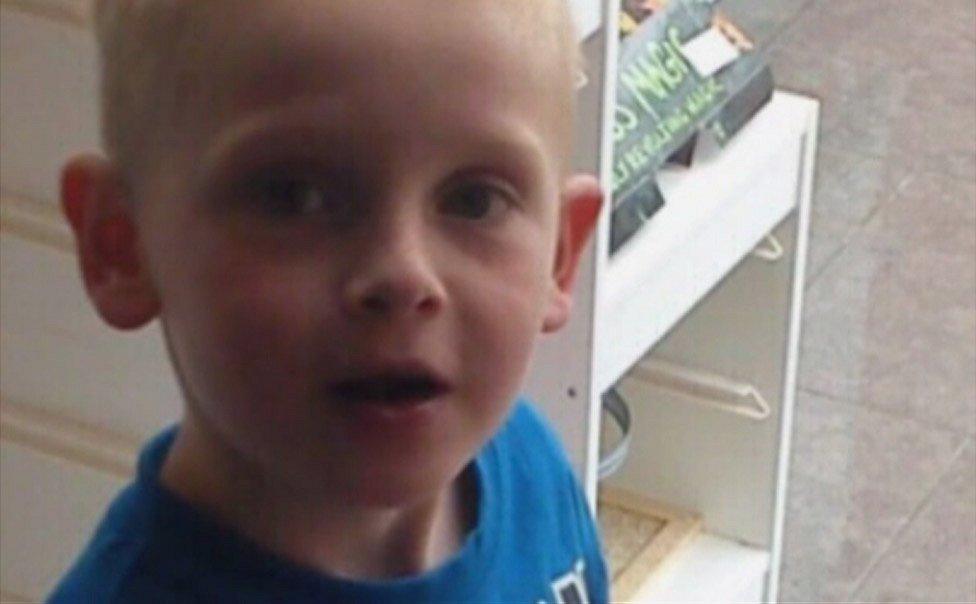
Luke had operations from the age of three months
He considered himself to be best friends with his cardiologist in Cardiff.
In fact his mother, Faye Valentine, tells me he told her Luke had decided he wanted to be a doctor when he grew up so that he could help other children who were ill.
But Luke never got the chance to realise his dream.
A week before Easter 2012, Luke was admitted to Bristol Royal Hospital for Children for his final big heart operation.
The hospital is the specialist centre for heart surgery for children from south Wales and the south west of England.
The operation, his parents tell me, was a success.
But they say they were worried when staff decided to transfer Luke from intensive care to a specialist ward - Ward 32 - less than 24 hours after surgery.
After his previous operations, they say Luke had been kept in intensive care for several days.
Over the coming days Luke's parents were worried about his recovery
He was in a lot of pain, was bleeding from his chest and kept triggering medical alarms
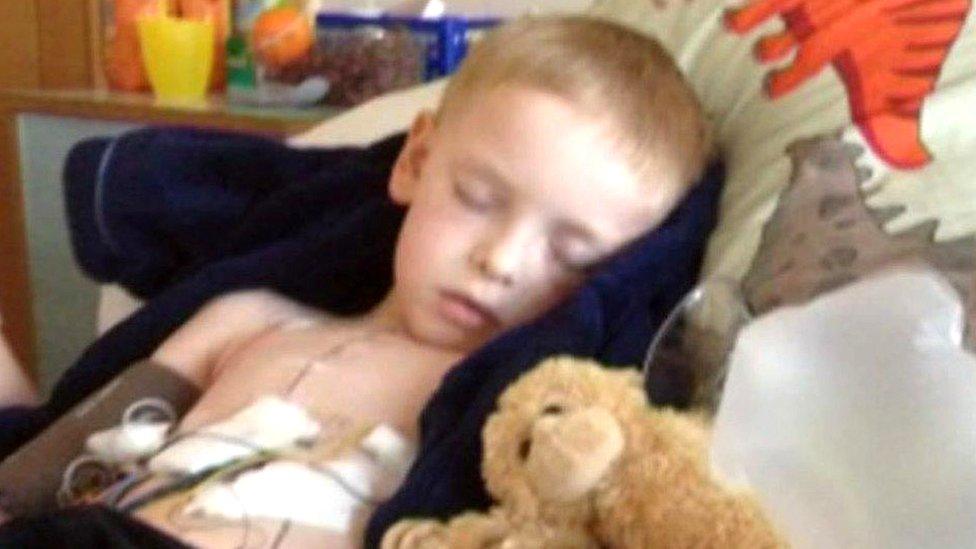
Luke was used to hospitals
His parents flagged up their worries to staff - and wanted Luke to be re-admitted to intensive care.
That did not happen.
Luke's parents claim part of the problem was that the ward was understaffed, and Luke wasn't being properly monitored.
They also complained of a lack of communication between different medical teams.
By Good Friday, according to Mr Jenkins, his son woke and asked to see his mother, brother and two sisters.
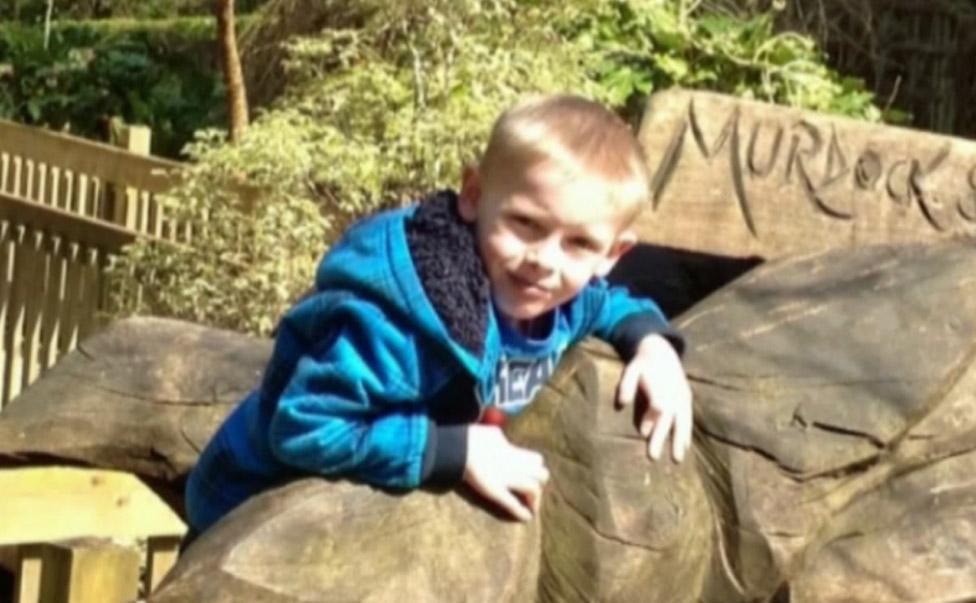
They were staying in accommodation in another part of the hospital
By the time they arrived at his bed-side, Luke was screaming, clutching his chest.
He fell unconscious. And the "crash" resuscitation team rushed in.
His siblings looked on as Luke's chest was opened and the doctors tried to restart his heart. It took 43 minutes.
The memory still haunts the entire family.
Luke never regained consciousness and died in the early hours of Sunday morning.
Ever since, the Jenkins family have sought find out what went wrong.
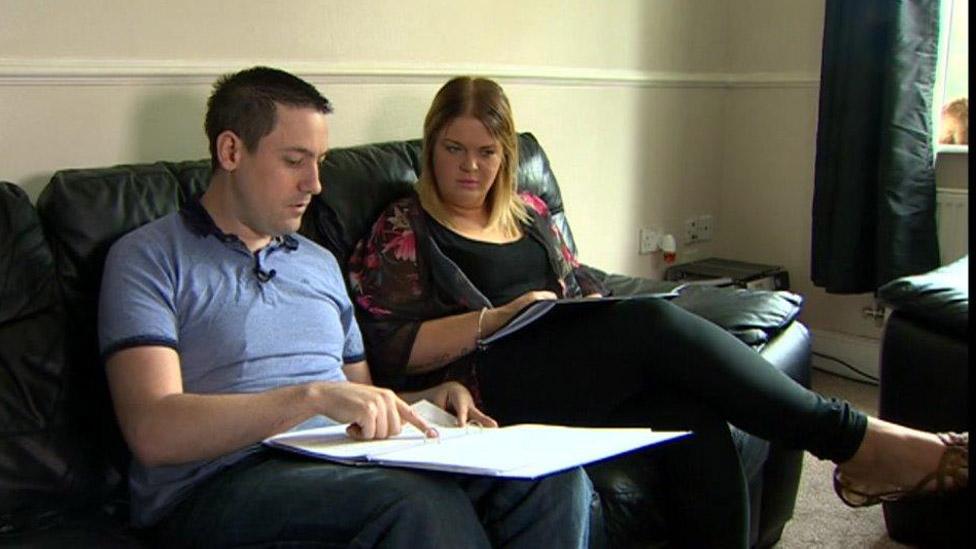
Luke's parents have a high court hearing listed
Several investigations and reviews have been completed, others are ongoing.
The Independent Review into Cardiac Services is just the latest.
It concludes Luke's ward was often "under pressure" - and that "the nursing numbers would have fallen below the recommended levels on a reasonably frequent basis, and that there was a clear risk of harm as a result."
The review endorses work being implemented to ensure safer staffing levels on wards caring for very ill children.
So are Luke's parents satisfied?
Not really. His mother Faye tells me: "It's all a bit wishy-washy and quite disappointing."
The family are pinning their hopes that a forthcoming review by the Parliamentary ombudsman will provide more robust answers. They are also pursuing their own legal action.
What is clear is the Jenkins family feel they have had to and continue to battle against a health system that is on the defensive and reluctant to admit mistakes.
The latest review states the local NHS trusts approach to handling complaints, instead of resolving concerns, had at times led to "deepened suspicions and rifts".
There are recommendations to strengthen complaints procedures.

Rachel Puaca, from Bridgend, talks about her son Jack, who underwent open heart surgery at Bristol in 2010 when he was a baby
REVIEW RECOMMENDATIONS WHICH AFFECT WALES
"An urgent need for the effective implementation of standards designed to ensure consistency of services for patients and families across the network, including in fetal medicine, maternity and neonatal services both within Wales and between Wales and Bristol.
It notes the commitment given by the Welsh Health Specialised Services Committee (WHSSC) to working with NHS England's congenital heart disease review team, the new congenital heart network and providers to ensure the coordination of plans to improve services. It endorsed the importance of ensuring the consistent provision of services, to a uniform standard, across both England and Wales.
It recommends that the commissioners and providers of fetal cardiology services in Wales should review the availability of support for women, including for any transition to Bristol or other specialist tertiary centres. For example, women whose fetus is diagnosed with a cardiac anomaly and are delivering their baby in Wales should be offered the opportunity, and be supported to visit the centre in Bristol, if there is an expectation that their baby will be transferred to Bristol at some point following the birth.
It also recommends that the South West and Wales Network should regard it as a priority to achieve better co-ordination between the paediatric cardiology service in Wales and the paediatric cardiac services in Bristol.

But with each report and review the family say their personal grief comes flooding back - as Stephen Jenkins puts it - "it's like a punch in the stomach all over again".
Robert Woolley, chief executive of University Hospitals Bristol NHS Foundation, said as the report was published it wanted to "say sorry, particularly to those parents where the review has found our care fell below acceptable standards".
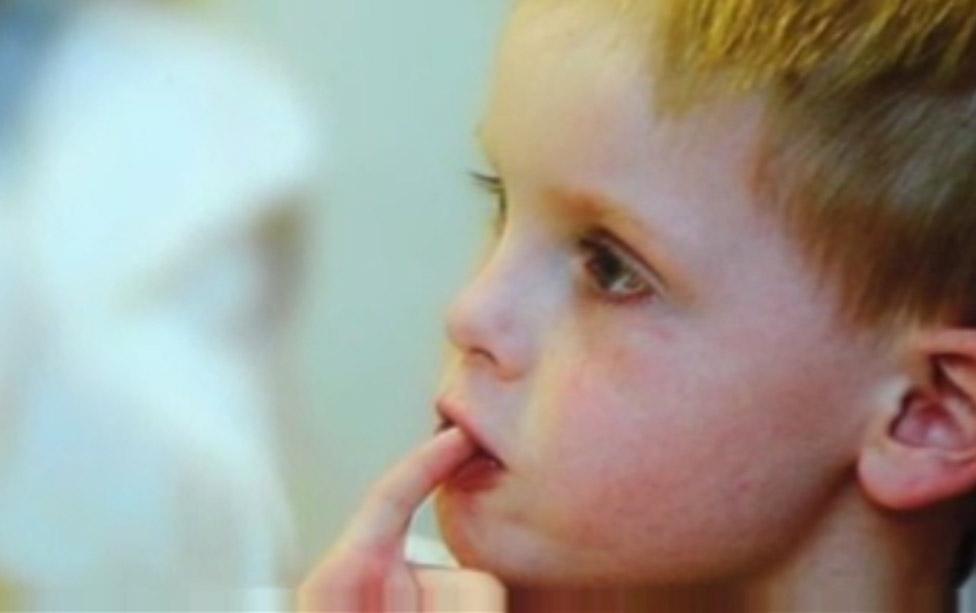
Welsh Health Secretary Vaughan Gething said they would ensure, where appropriate, any relevant recommendations from the review is incorporated into the Welsh heart disease delivery plan.
"I appreciate this may be a difficult time for the Welsh families affected by this report," he said. "I want to reassure those families we will be working closely with the NHS in Wales to ensure any lessons are learnt and shared."
The Welsh Health Specialised Services Committee's medical director Dr Siân Lewis added: "I want to reassure the families that, since we first became aware of the issues that led to this report, we have been working closely with University Hospitals Bristol NHS Foundation Trust to address the issues raised."
As for the Jenkins family, they say: "We just wanted them [the hospital] to say sorry - we just want to remember the happy times."
The happy times spent in the company of Luke; the little boy who despite his own illness and frailties wanted more than anything to be a doctor, so that he could help others.
- Published30 June 2016
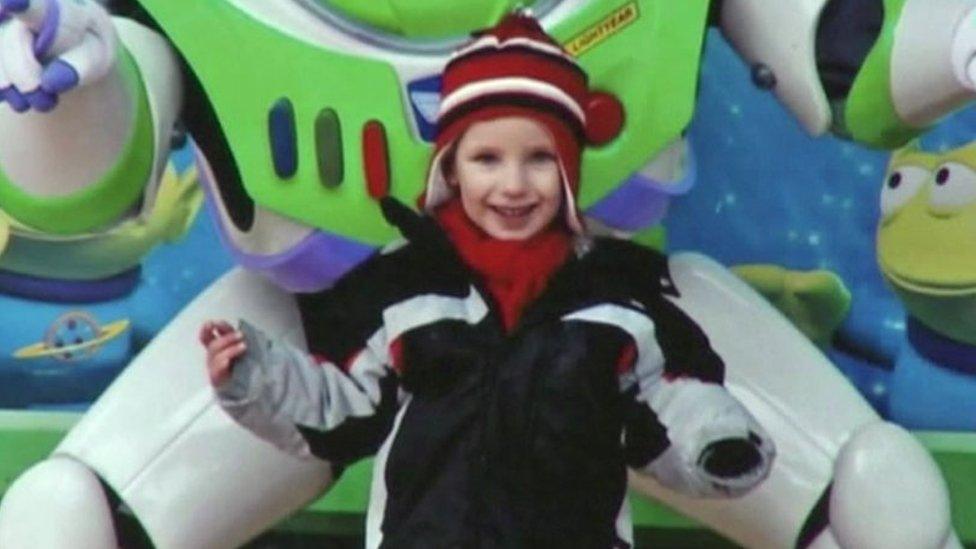
- Published21 November 2013
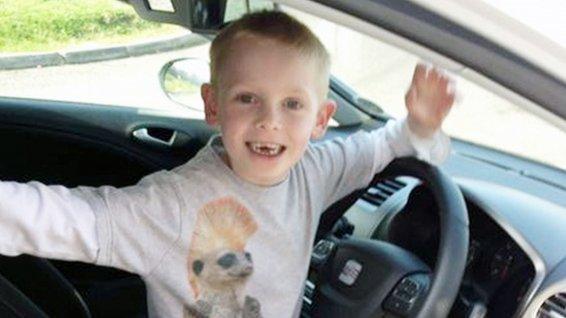
- Published11 November 2013
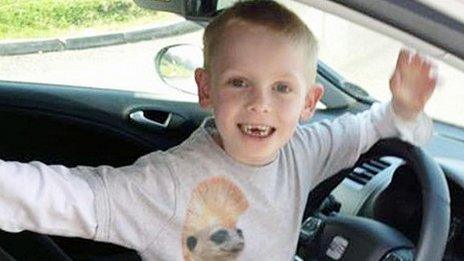
- Published10 September 2012

- Published12 September 2012
